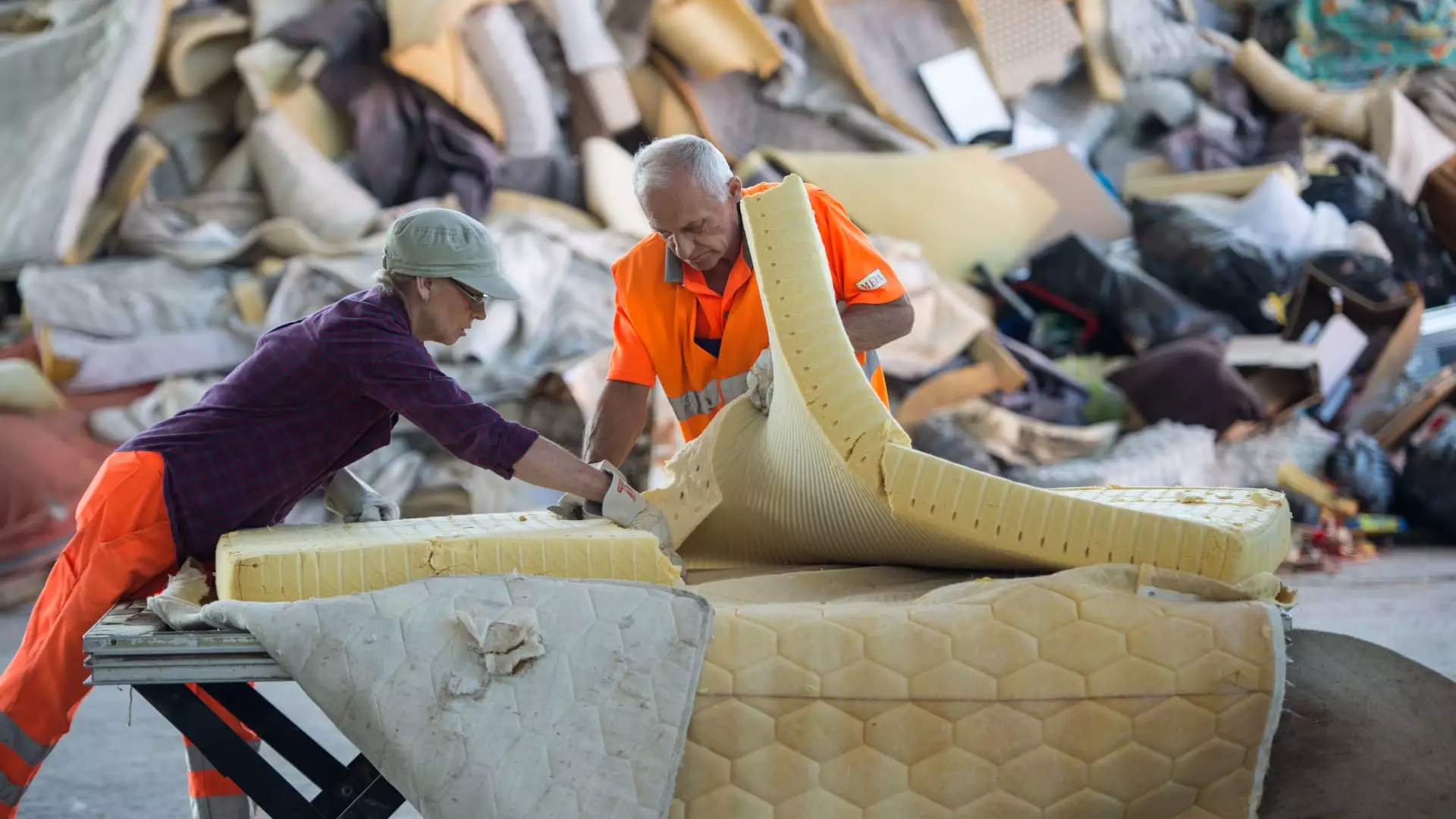As society becomes increasingly aware of its ecological footprint, innovative strategies to bolster recycling efforts are emerging across the United States. In a significant move towards sustainable consumption, four states—California, Connecticut, Oregon, and Rhode Island—have implemented a recycling fee on the purchase of mattresses and box springs. This initiative not only aims to mitigate the mounting problem of mattress waste but also aligns with broader efforts to transition toward a circular economy, impacting various industries from packaging to electronics.
The statistics regarding mattress waste are staggering. Approximately 15 to 20 million mattresses are discarded by Americans annually, translating to nearly 50,000 each day. The Mattress Recycling Council (MRC) reports that over 75% of mattress components—such as wood, steel, and foam—are recyclable. Unfortunately, a significant portion of this waste ends up in landfills, contributing to environmental degradation. By implementing recycling fees that range from $16 to $23, these states aim to collect funds used to launch and support local recycling programs.
Residents purchasing a new mattress or box spring in Oregon, for example, now pay an additional $22.50 per unit as part of the “stewardship assessment.” This fee is prominently reflected on receipts, thereby enhancing consumer awareness regarding the costs associated with waste management. Such fees ensure that consumers contribute to the sustainability of the products they buy, creating a sense of collective responsibility towards the environment. In response to the growing demand for mattress recycling solutions, other states like Massachusetts, Maryland, New York, and Virginia are now considering similar initiatives.
For residents of states with established recycling programs, the convenience offered is substantial. Oregon is committed to creating accessible drop-off locations for residents to recycle unwanted mattresses. This initiative not only simplifies the process but also aims to discourage illegal dumping by providing viable and free options for mattress disposal. Having over 300 collection sites makes recycling more attainable, encouraging responsible behavior among consumers. Additionally, these programs have the potential to create jobs in the recycling sector, offering professional opportunities while addressing environmental needs.
The concept behind these new recycling mandates is rooted in Extended Producer Responsibility (EPR). This approach shifts the onus of waste management onto manufacturers, compelling them to participate in the lifecycle of their products. As Reid Lifset, a noted industrial ecology expert, explains, EPR programs facilitate a sustainable funding model for waste management and recycling processes. By allowing retailers to pass consumer fees to the MRC, states can effectively pool resources to finance recycling programs and ensure their viability.
This framework also sheds light on how collective action can enhance the circular economy. As each state adopts EPR practices, it sets a precedent for other regions and industries to follow suit, magnifying the impact of such initiatives on a national scale.
Despite the positive strides being made, challenges remain. States without recycling legislation face limited options for mattress disposal. The current directory features just 58 facilities across the country equipped to recycle mattresses, and those in areas lacking support often bear hefty fees for disposal services. Hence, the plea for more states to embrace similar recycling initiatives becomes increasingly urgent.
As society navigates the complexities of waste management, it is clear that the mattress recycling effort is a microcosm of larger global initiatives aimed at environmental preservation. The urgency to address mattress waste through effective policies not only enhances recycling rates but also instills a sense of accountability among consumers and manufacturers alike. The shift towards sustainable practices is no longer optional—it is essential for fostering a healthier planet for future generations.

